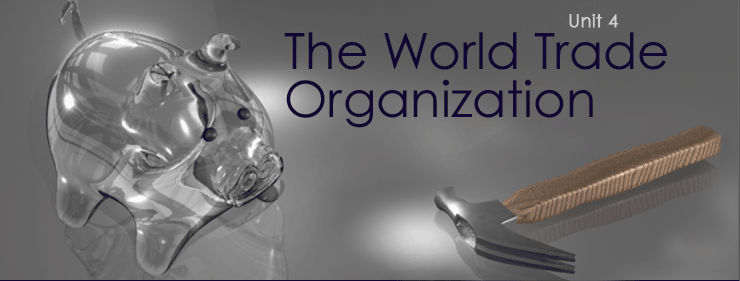Unit
4: The WTO
Introduction
While the theory of comparative
advantage suggests that any two countries acting in their
own interests would naturally engage in trade, it isn’t
always that easy. Historically speaking, keeping lines of
trade open has been relatively difficult, since such trade
often threatens entrenched political powers or can be used
by them to enhance their own power. The current World Trade
Organization standoff over developed country agricultural
subsidies is a case in point: these subsidies are certainly
politically “necessary” in the US and Europe.
But they keep more cost efficient producers in developing
nations out of the market, and thus in poverty. This section
takes a look at the kinds of institutions that are needed
for trade to go on smoothly, and how they work. Here, we
will highlight the contemporary importance of the World
Trade Organization.


